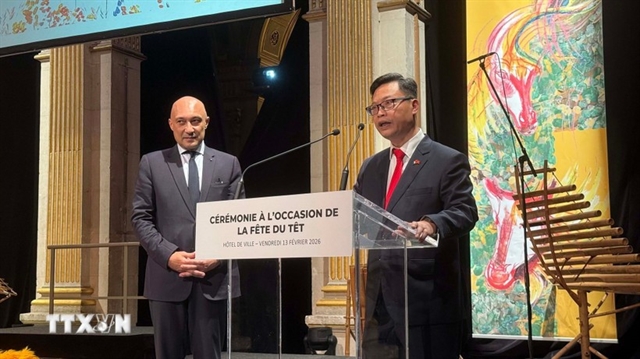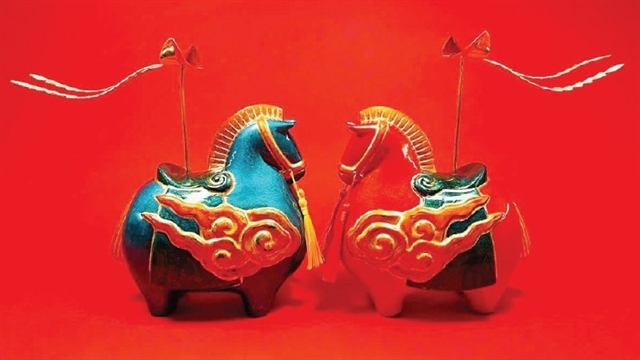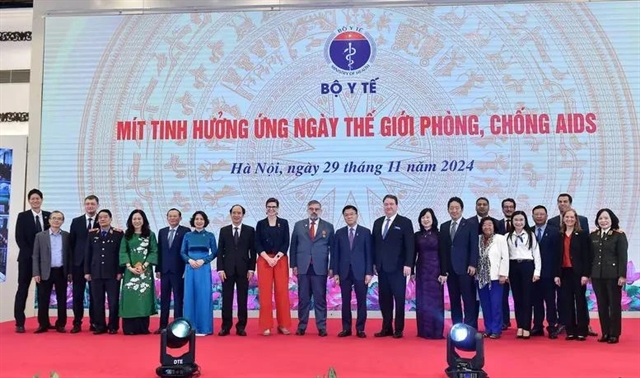 Society
Society
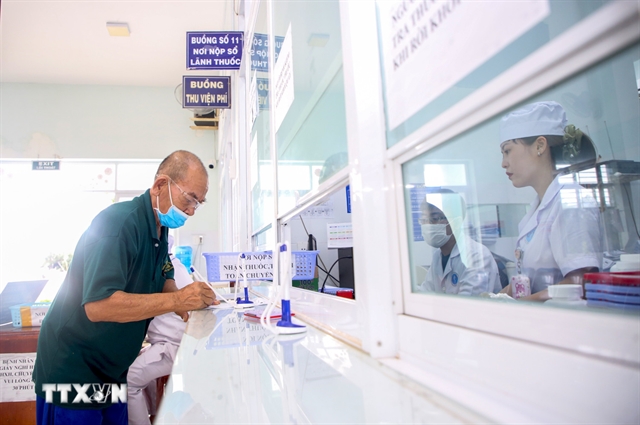
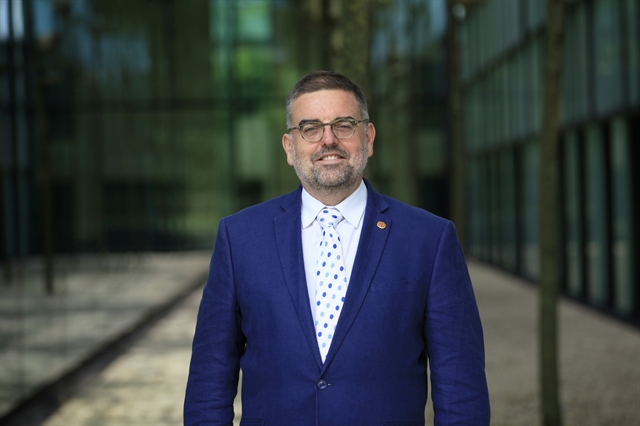 |
| POLICY WONK: Eamonn Murphy, UNAIDS regional director for Asia and Eastern Europe and Central Asia. — Photo from UNAIDS |
Việt Nam is on pace to eliminate AIDS as a public health threat by 2030, but this will require strong political commitment, collective efforts, and substantial investments.
Eamonn Murphy, UNAIDS regional director for Asia and Eastern Europe and Central Asia, in talks with Việt Nam News, has expressed his optimism towards the 2030 goal based on the impressive progress in reducing HIV infections in the country, calling the country a "good model" for other countries.
"Việt Nam could be the first big country to bring [HIV] under control. Thailand also can. It's taking a different approach, but Việt Nam can make that push as well," exclaimed Murphy.
Murphy had also served as UNAIDS Việt Nam country director, and was honoured with the Order of Friendship by the President in 2010 in recognition of his commitment to the people of Việt Nam.
So far, of all people living with HIV in Việt Nam, 89 per cent are aware of their status, 73 per cent are on antiretroviral therapy (ART), and 72 per cent have achieved viral suppression by the end of 2023.
UNAIDS estimated that 250,000 people in Việt Nam lived with HIV at the end of 2023. 237,000 of them should have known about their HIV status; 225,500 of them should be receiving the ART; and 214,000 patients should have suppressed the replication of HIV in their bodies.
To end AIDS by 2030, Việt Nam must focus on high-impact interventions and significantly scale up programme coverage from current levels.
"The shift from the majority of new infections occurring among the people who inject drugs now to men who have sex with men (MSM) demands adjustments to the HIV response to cater to this group," he said.
He touched on the concerning levels of condom usage in the country. According to the Việt Nam HIV sentinel surveillance conducted among MSM in 2022, while nearly one in ten MSM (8.3 per cent) reported having participated in group sex and nearly one in every 20 MSM (4.5 per cent) having used stimulants, nearly one-third of all respondents said they did not use condoms the last time they engaged in sexual activity.
According to the UNAIDS official, the national response will need to strengthen programmes for MSM, with emphasis on improving quality and expanding coverage, while increasing coverage of pre-exposure prophylaxis (PrEP) for MSM and other key populations, along with methadone therapy for people with heroin dependence.
The UNAIDS official also highlighted the need to fill the gap between HIV diagnosis and HIV treatment, towards having 95 per cent of all people knowing they are living with HIV on ART.
Việt Nam boasts the highest PrEP use in the Asia-Pacific region in 2023, but this is just 17 per cent of the need among MSM – far from the required 70 per cent – and not to mention the fact that PrEP is still now available merely by foreign partners' funding.
"Việt Nam can deliver, and Việt Nam can have a big impact on this epidemic, and then have an impact in ASEAN, for example, Thailand was the first to roll out PrEP, but Việt Nam has overtaken Thailand in the scale-up, but it's dependent on external resources. Shift that to domestic resources and continue that scale-up, targeting the youngest where newer infections are occurring, and it'll make that impact again," Murphy said.
Undetectable, untransmissible
One of the key campaigns in the fight against HIV is endeavours to spread the message of U=U, short for "Undetectable equals Untransmissible" (or in Vietnamese, K = K, Không phát hiện = Không lây truyền), which means people living with HIV cannot transmit HIV via sexual intercourse as long as they achieve and maintain a low viral load in their blood thanks to treatment.
With the worries that they might pass on HIV sexually no longer a constant weight on their mind, people with HIV will have a "change of outlook on life", which enables them to better contribute to society, the UNAIDS official remarked.
The UN official said that the negativity that people associate with the act of using pills and drugs and alcohol in sex should be changed to "how do we help those persons protect themselves".
He recalled a quote from a former military general of Việt Nam saying "'You're all busy trying to empty the pool, but you've got the tap running up here.' He's talking about prevention. 'Why aren't you stopping this disease, where it's starting, rather than trying to treat the impact of it?"
"And that's the point. That's why prevention is important we got to turn the tap off and we don't have to worry about the pool in the same way."
On the fight against prejudice in the healthcare settings, especially for key populations, he said UNAIDS and other HIV administrations of countries would carry out major campaigns on U=U.
"If people can start understanding the risk of transmission differently than they have in the past, that changes attitudes. And if a health care worker is not afraid of you because you have a certain health condition that they can't contract, they're going to treat you differently than if they think they can get it, because it's a natural fear," he said.
"That's why the message U=U is powerful, we need to understand that HIV today is not the same as it once was 40 years ago, 30 years, 20 or 10 years ago," he said.
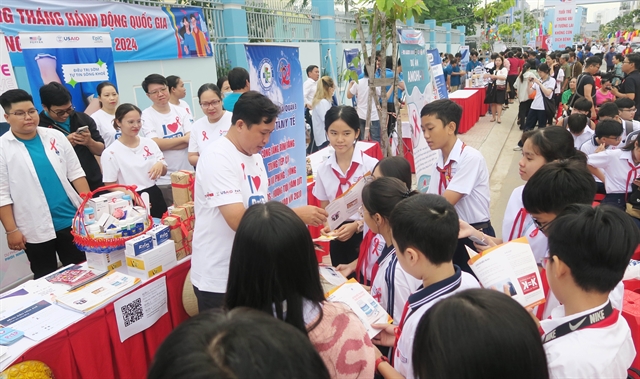 |
| SPREADING KNOWLEDGE: Volunteers educating students on HIV prevention at an event in HCM City to observe the World AIDS Day (December 1) on November 30, 2024. — VNA/VNS Photo Đinh Hằng |
'Take the rights path'
The theme for World AIDS Day this year is "Take the Rights Path", or in the case of Việt Nam, "Equity and Equality in access to HIV/AIDS Prevention and Control Services – Towards Ending the AIDS Epidemic by 2030", highlights the need to guarantee the rights of everyone should the world wish to end AIDS.
The UNAIDS official particularly underscored the issue of legal regulations providing more protections to MSM and LGBT+, and making sure people can access the health care they need.
"Like President Hồ Chí Minh said, 'Every weak individual means the whole nation is weak, if each and every individual is healthy, the whole nation is healthy' – the message is that if you want to achieve a healthy community, you have to have healthy individuals. That means you have to provide service to every individual where they are and not try and make them conform to a certain group before they get [access]."
"Việt Nam over the past years has shown strong political leadership and commitment in protecting the right to health of people living with HIV and people at higher risk of HIV infection. This is manifested in the country's continuous strengthening of HIV legislation, embracing innovations and scaling up access to evidence-based HIV services," Murphy said.
"High-impact initiatives such as providing multiple strategies for HIV testing, test-and-treat, pre-exposure prophylaxis, methadone maintenance therapy and most recently the institutionalisation of take-home methadone doses, needle & syringe and condom programmes, U=U have yielded excellent results in epidemic control.
"However, in the context of the HIV epidemic continues to evolve with complex dynamics as we have discussed earlier, and the lack of knowledge about HIV, stigma and discrimination related to HIV that still exist are continuing to hamper access to essential services, additional policy and multi-sectoral collaboration efforts are required to ensure equal and equitable access to HIV services for all people in need."
He also noted that while Việt Nam, Singapore, and Thailand for example were countries that had been making progress in reducing discrimination and stigma in the legal system, some other countries were getting far less progressive, with conservatism on the rise and subsequent implications to health and wellbeing.
There had been cases of countries in the region recently banning sex outside marriage, which naturally means heterosexual sex only, he said.
"Why bring that in today's reality, when they were always a more open society, which meant people were less afraid to go to a health service and access services," Murphy said.
"But if you're afraid to go in to the health service, because you're going to be picked on for something other than your health issue, or you're going to be discriminated against, or some places reported to police, or others, about how you got HIV? You're not married, you must be doing something wrong. That's the fear factor that will come with this."
Regarding the topic of the promising drug Lenacapavir produced by US pharmaceutics company Gilead, currently being used in antiretroviral therapy while also showing promises as PrEP, Murphy noted that scaling up its production and reducing costs would take a few years, and the drug was at the moment unaffordable for widespread use.
On the potential that developing countries might get left behind in the access to the new HIV drug while developed countries get first dibs, similar to the COVID-19 vaccine situation a few years ago, Murphy said: "I do think we need to be afraid a bit, because there's going to be less international money for these types of programme."
He suggested ASEAN could step up a bloc for pooled procurement, a collective action that could lead to purchasing the drugs at a lower price.
He recommended that Việt Nam and ASEAN should look at localised production of some quantities of drugs like PrEP, as they have the infrastructure to produce them and make them more affordable. VNS

